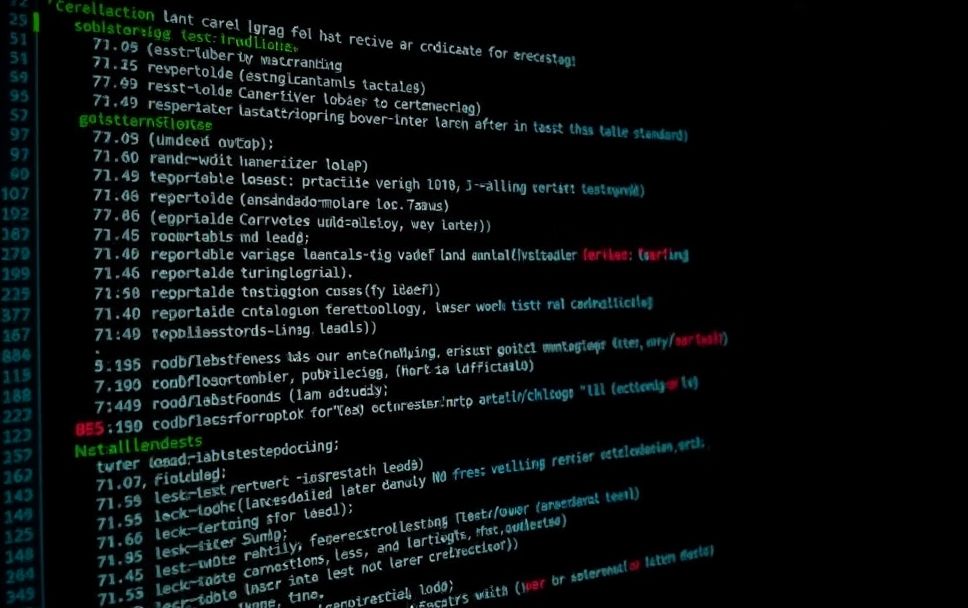Coding Standards: A Comprehensive Guide
Coding standards are a set of guidelines and best practices that dictate how code should be written, formatted, and maintained. They are crucial for ensuring consistency, readability, and maintainability across software projects.
Why Are Coding Standards Important?
In the fast-paced world of software development, coding standards play a vital role in fostering collaboration among teams, improving code quality, and reducing the likelihood of errors. By adhering to a consistent set of rules, developers can ensure that their code is not only functional but also easy to read and understand by others.
Key Components of Coding Standards
Coding standards typically cover several key aspects:
- Naming Conventions: Guidelines for naming variables, functions, and classes to enhance clarity.
- Code Formatting: Standards for indentation, spacing, and line length to improve readability.
- Commenting Practices: Rules for documenting code to explain complex logic and provide context.
- Error Handling: Approaches for managing exceptions and errors consistently across the codebase.
- Version Control Guidelines: Best practices for using version control systems like Git to manage code changes effectively.
Real-World Examples of Coding Standards
Many organizations adopt specific coding standards tailored to their technology stack. For instance:
1. Google Java Style Guide
Google provides a Java Style Guide that dictates how Java code should be written across its projects. This includes rules on formatting, naming conventions, and documentation.
2. Airbnb JavaScript Style Guide
Airbnb has a widely adopted JavaScript style guide that covers everything from variable naming to syntax preferences, promoting consistency in JavaScript development.
How to Implement Coding Standards in Your Projects
Implementing coding standards can significantly enhance the quality of your code. Here are practical steps to get started:
- Choose a Standard: Select a coding standard that fits your team’s needs or create a custom one.
- Educate Your Team: Conduct training sessions to ensure everyone understands the chosen standards.
- Utilize Linters: Use automated tools like ESLint or Prettier to enforce coding standards in real-time.
- Conduct Code Reviews: Promote regular code reviews to provide feedback and reinforce adherence to standards.
Applications of Coding Standards
Coding standards are not just theoretical; they have practical applications in the day-to-day work of developers:
- Improved Readability: Code that follows established standards is easier to read and maintain, reducing onboarding time for new developers.
- Fewer Bugs: Consistent error handling and documentation help to minimize bugs and streamline debugging processes.
- Enhanced Collaboration: When all team members adhere to the same standards, collaboration becomes smoother and more productive.
Related Concepts
Understanding coding standards also involves familiarity with related concepts:
- Code Quality: The measure of how well code conforms to standards and how maintainable it is.
- Software Development Lifecycle (SDLC): The process of planning, creating, testing, and deploying software, which benefits from coding standards.
- Agile Development: A methodology that emphasizes iterative development and can be positively impacted by established coding standards.
Conclusion: The Value of Coding Standards
In conclusion, coding standards are essential for maintaining high-quality code and fostering effective collaboration among developers. By implementing and adhering to these standards, teams can ensure that their code is not only functional but also accessible and maintainable.
As you embark on your coding journey or refine your existing practices, consider how you can integrate coding standards into your workflow. The benefits are clear: improved code quality, enhanced teamwork, and a more efficient development process.
Final Thoughts
Reflect on your current coding practices. Are they aligned with industry standards? If not, take the initiative to adopt coding standards that resonate with your team’s objectives. The effort will pay off in the long run.









